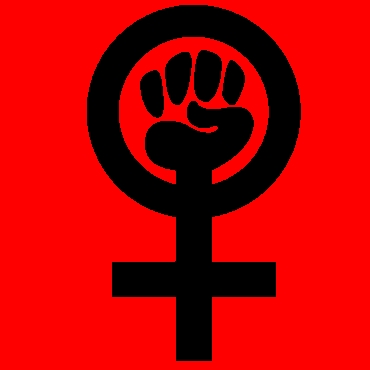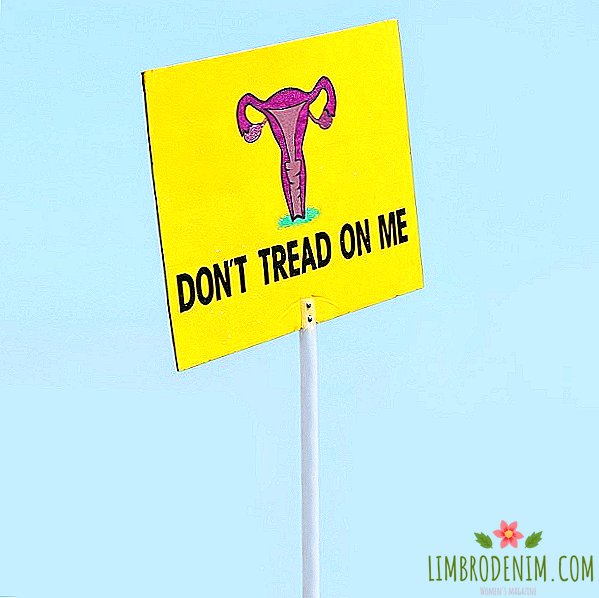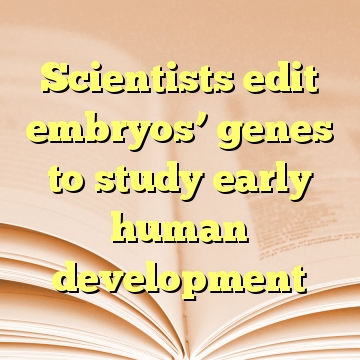"The world is driven by precedents": Activists about whether petitions are working
Petitions have long been the usual way to fight with injustice - surely you have signed more than one in your life. Many are skeptical of them: collecting the required number of signatures does not necessarily mean that the problem will be solved. Those who are more optimistic say that the main thing is public response. We talked to the three heroines who launched various petitions (the winners and not yet) about what results they had achieved and what difficulties they encountered on the way.
 My petition is dedicated to the case of Galina Katorova - a woman from Nakhodka, a small town in the Primorsky Territory. She was beaten by her husband for seven years. In the end, once he rushed to choke her - she tried to protect her life, grabbed a small knife, slashed it ten times, and one of the wounds was fatal. She was judged by the standards of premeditated murder and demanded to be put for ten years.
My petition is dedicated to the case of Galina Katorova - a woman from Nakhodka, a small town in the Primorsky Territory. She was beaten by her husband for seven years. In the end, once he rushed to choke her - she tried to protect her life, grabbed a small knife, slashed it ten times, and one of the wounds was fatal. She was judged by the standards of premeditated murder and demanded to be put for ten years.
When the case began, a lawyer who led the case to the defense, connected me and my project “Feminologists”. We made a petition: we demanded not to deprive Galina of freedom, because she is the mother of a three-year-old daughter, her mother is an elderly woman who has health problems. In addition, we believe that judging a woman for self-defense by the standards of murder is unacceptable. The key message of the petition was that it was impossible to judge a victim of violence as a rapist. We wanted to cause a resonance, we wanted the media to find out about this case, and thought that a petition was the best way to achieve this. We are in Vladivostok, and to draw attention to what is happening in this part of Russia is problematic.
First, we filed a petition on the ROI website - a public initiative. The answer was very dry, clerical - we were told that we were trying to influence the judicial system, the course of the trial. There was only Change.org. Thanks to journalist Olga Krachevskaya, a lot of people learned about the new petition, Mari Davtyan joined. Today, the petition has 177 thousand signatures; at the time of the trial, when Galina was sentenced, there were 93,000. The judge received printouts from Change.org. Of course, she did not attach them to the case, but, nevertheless, instead of the seven years that the prosecutor asked, Galina was given three years of general treatment - given that she was already in prison (at that time she was there for a year ). On the one hand, this is a good sentence, because from the age of ten we suddenly went three. On the other - we believed and continue to believe that she does not deserve deprivation of liberty in principle, because it was self-defense.
The result of the petition, it seems to me, is not excellent, but satisfactory. We did not stop the petition, because now we will file an appeal - this issue is handled by Galina’s lawyer Elena Solovyova. She submits documents to the ECHR. Now we have 177 thousand votes. We will also attach these data to the documents for filing an appeal with the ECHR. But with all the social resonance this does not affect the judicial system. Maybe the judge was more worried: this is Nakhodka, a small town - and here such a scope, so many people are closely watching what the sentence will be pronounced. But we are still in Russia. We are terrified, do not know how else to help, use all means. Activists who were involved in the Galina case, her mother and a lawyer were invited to the Malakhov show, for a similar program on Channel One - we even thought to go there, because it is important to save Galina. This is a very hard story. The petition looks as efficient as possible in terms of drawing attention to the situation: so many people believe that it is not necessary to imprison a woman for self-defense. I don’t know how this can affect in the long run - not so much on Galina’s affair as on deciding on the law on the decriminalization of beatings. This is the main goal.
I do not remember the exact number of my petitions - I think they are over twenty. There was a petition about Dima Monakhov, who was killed in the army when he served there. I spoke with his stepfather, my sister, and they say that the petition helps them in protecting the interests of the family after his death. There is a petition that is still ongoing and is very much needed - under the law on domestic violence. There was a petition under the law on combating cruelty to animals - animal protection petitions are important, because now there is a law in the State Duma that cannot be coordinated. There are important points in it that influence non-violence towards animals. There is a petition that was launched not by me, but we are jointly posting information about it - for example, for investigating a deputy Slutsky. I believe that the petition is a great tool for civic engagement, because it promotes business among the target audience. The world is driven by precedents, and a petition allows for creating a precedent that helps inform people about the problem, determine ways to solve it, and obtain support.
In the situation with Aeroflot, we won. In the internal rules of the company there was a clause that said that if a woman does not meet the parameters of appearance, age (but not professional qualities), she should be demoted. Six hundred flight attendants fell under this point, only two went to defend their rights in court: Yevgeniya Makhorina and Irina Ierusalimskaya. They were transferred to domestic flights from international, their salaries dropped sharply. The company put pressure on them.
Before the launch of the petition, the flight attendants lost the court of first instance - he did not find discrimination. With the help of the petition, it was possible to launch a public campaign, which had just affected the situation: women won in the Moscow City Court, the court ordered to remove the clause from internal rules. Against the petition launched an active struggle. Aeroflot announced a tender to find an agency that will help look for posts with reputational losses. Against me and my colleague Marina Akhmedova, materials began to appear that we are “Western agents” in collusion with the world intelligence services. On the flight attendants also began unreal pressure. But somehow the onslaught led to victory.
The main difficulty in working on petitions, it seems to me, is to make these petitions work to solve the problem. The law on domestic violence (even though we have an amazing job and a lot of people support us) has not yet been adopted. Here, the problem is more likely not in the petition itself, but in how to promote and implement it. This is a rather complicated petition, it changes social norms, and not only protects someone’s interests. To make a law on domestic violence is to completely change the attitude towards violence in a country. Of course, difficulties will arise because there are conservative forces: the ROC, Parental All-Russian resistance. Difficulties arise because many people are simply not ready to accept that the old social norm does not work, and another must work. But it is necessary to explain, it is necessary to move towards the solution of the question.
But we can talk about the interim results of the petition. In the third reading, the State Duma adopted amendments to the Criminal Procedure Code, introducing a new interim measure - in fact, a ban on approaching, that is, a protection order. This is a very important, basic requirement for the protection of victims of domestic violence. Unfortunately, these interim results will not be of much help if cases of domestic violence are not initiated in criminal proceedings (as is known, cases of domestic violence fall into it only when there is already damage to health, such as fractures). But I can say that during the existence of the petition and two years of active work, a lot has changed - even the attitude of the people themselves to domestic violence.
 Eleven years ago my first child was born. And so it happened that he was born with a disability. Therefore, for eleven years now, my main priority in life is children with disabilities and their families. In our country in this area there is still very, very much that needs to be done, and issues are being resolved very slowly: there is little funding, little interest, little understanding. I resorted to the format of petitions for the first time back in 2008, and it turned out to be very effective: questions began to be submitted for public discussion and to be resolved.
Eleven years ago my first child was born. And so it happened that he was born with a disability. Therefore, for eleven years now, my main priority in life is children with disabilities and their families. In our country in this area there is still very, very much that needs to be done, and issues are being resolved very slowly: there is little funding, little interest, little understanding. I resorted to the format of petitions for the first time back in 2008, and it turned out to be very effective: questions began to be submitted for public discussion and to be resolved.
I have four petitions now. For two of them, a victory has already been declared, and the issues have been resolved positively. First, the company Marks & Spencer began selling clothes for special children in Russia. Secondly, the Department of Social Protection of the City of Moscow canceled the mandatory transfer of payments of pensions and benefits to nominal accounts.
I myself tried for a long time to start producing clothes for children with disabilities, but I ran into problems: our clothing manufacturers did not want to take on this line, and the designer I found hoping to start my own production deceived me and threw money on me. Then I learned that Marks & Spencer started producing and selling such clothes in the UK. At first I wrote and asked to start selling these clothes in the Russian Federation, but I received no answer. Then there was an idea to make a collective letter - and I created a petition. She gathered 50,000 signatures in a couple of days, I contacted M & S employees in Russia, gave them her text and signatures. Coincidentally, a general seminar for M & S employees was held in London, and representatives of the Russian office immediately handed over everything to the management, which immediately took action. And now clothes for children with disabilities are sold in Russia through the online store.
With nominal accounts, to which the Department of Social Protection of the City of Moscow wanted to transfer the receipt of pensions and benefits, the story has been going on since 2009. There are gaps in the legislation, inconsistencies, discrepancies that the authorities periodically interpret not in favor of families with children with disabilities, which is why problems arise. I edited these legislative norms when I was an assistant to a State Duma deputy, so when a problem arose, I immediately knew what it was and how to solve it. But I had to act quickly, so I again decided to resort to a petition. It took only 7 thousand signatures and a week for the department to cancel the order.
The two remaining petitions are still in the works. This is a petition demanding that special child car seats be added to the federal TSR list and a petition demanding to equate the allowance for persons "caring for a disabled person" (LOU) to a minimum wage. The last petition gathered more than 500 thousand signatures, it was supported during the election campaign by Grigory Yavlinsky, Pavel Grudinin, Vladimir Zhirinovsky. Deputies of the LDPR faction on the basis of a petition on February 12 submitted a bill to the State Duma. But while the question is still not resolved, the final answer from the president - the addressee of the petition - is not. I continue to distribute the petition on social networks, thematic forums, conferences, send it to the media, spend a flashmob # raise the method, I released a video, visited the presidential administration. I believe that it is very important to ensure that the federal media talk about the petition, that the federal authorities, who keep silent, pretending that they are not aware of the problem, finally began to give answers.




